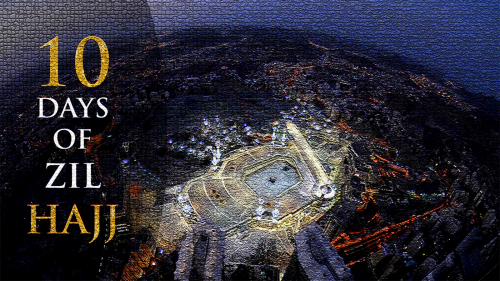Qur’an And Torah Agree: No Birthday For Us

According to a Hadith cited by ibn Kathir in elucidating Qur'an 2:185; Ramadan is a very special month because this one month in the Islamic lunar calendar was the same month when four of God's books of revelations were sent down to four special Prophets: Abraham, Moses, Jesus and Muhammad.
Ibn Kathir states: Imam Ahmad reported Wathilah bin Al-Asqa` said that Allah's Messenger said: “The Suhuf (Pages) of Ibrahim were revealed during the first night of Ramadan. The Torah was revealed during the sixth night of Ramadan. The Injil was revealed during the thirteenth night of Ramadan and Allah revealed the Qur'an on the twenty-fourth night of Ramadan.” (Ahmad 4:107 and Musnad 177025).
I do not know how Christians would understand the revelation of the Injil on the thirteenth day of Ramadan, but the Jewish holy day of Shavuot, which commemorates the giving of the Torah to Moses and Banu Israel, does fall on the sixth day of the Jewish month of Sivan, and Sivan in that year must have coincided with the month of Ramadan.
Without this Hadith it would not be obvious that these four history changing revelations, which happened many centuries apart, actually occurred during the same lunar month; because Jews, who also use a lunar calendar for all their religious dates, modify the length of the year with a leap month seven times in every nineteen year cycle, so as to always keep the harvest pilgrimage festival of Hajj Sukkot in the fall harvest season.
But there is another Hadith that states: “Narrated Ibn `Umar: Some men among the companions of the Prophet had dreams that the night of Qadr was in the last seven nights of Ramadan. Allah's Messenger said, "It seems that all your dreams agree that (the Night of Qadr) is in the last seven nights (of Ramadan), and whoever wants to search for it (the Night of Qadr) should search in the last seven (nights of Ramadan). Sahih Bukhari: Book 32, Hadith 3 #1943
Note that Prophet Muhammad, who certainly knew the date when he first heard the voice of Gabriel speaking to him, does not reveal exactly what day it was. And the exact date of the giving of the ten commandments to Banu Israel at Mount Sinai, is also not mentioned in the Torah, but only in the rabbinic oral Torah.
The Qur’an states: "We sent it (the Qur’an) down on a blessed night (Arabic laylah mubarakah, Hebrew lailah mevurakh) for We were sure to warn (every people in their own language). Every matter of wisdom is made distinct in it, by command from Us, for We were bound to send (prophets) as a mercy from your Lord, for He hears and knows (all)." (44:3-6)
The Qur’an's statements: “We were sure to warn” and “We were bound to send” reflects God’s merciful commitment to send prophets to teach and to warn every tribe, people and nation on earth about their responsibilities to God and their fellow human beings.
So too, in the Torah Prophet Moses reveals to the Jewish People: “Look! I have set before you today life and prosperity, and death and adversity. What I am commanding you today is to love the Lord your God, to walk in his ways, and to obey his commandments, his statutes, and his ordinances. Then you will live and become numerous, and the Lord your God will bless you in the land which you are about to possess.
"However, if you turn aside and do not obey, but are lured away to worship and serve other gods, I declare to you this very day that you will certainly perish! You will not extend your time in the land you are crossing the Jordan [River] to possess.
“Today I invoke heaven and earth as a witness against you that I have set before you: life and death, blessing and curse. Therefore choose life so that you and your descendants may live! I also call on you to love the Lord your God, to obey him and be loyal to him, for he gives you life and enables you to live continually in the land the Lord promised to give to your (Prophet) ancestors: Abraham, Isaac, and Jacob.” (Torah-Deuteronomy 30:15-20)
Prophet Moses is a warner (to Pharaoh and his people) and a mercy (bringing Torah guidance) for the Jewish people (and later for the Christians who included the Torah and the rest of the Hebrew Bible into their own holy scriptures)—just as Prophet Muhammad is a "mercy for all the worlds" (21:107).
The Qur’an explains that God’s commitment to reveal Divine guidance to humanity is not limited to the descendants of Prophets Abraham, Isaac and Jacob; it also extends to all the other nations.
When the Qur'an says, "The month of Ramadan is one in which the Qur'an was sent down” (2:185), the meaning of course, is not that the whole of the Qur'an was sent down to Prophet Muhammad on one night or in one month or even in one decade. What is meant is that the revelation of the Qur'an to Prophet Muhammad began in the month of Ramadan on a Night of Power.
The beginning of the revelation is equated with the whole act of revelation because the reality of revelation became clear to the Prophet on the first occasion of revelation. Later communications provided expanded expression of that message.
In the Jewish tradition the rabbis point out that the revelation at Mount (Arabic Tur) Sinai begins with: “I am the Lord your God who brought you out of Egypt…” One rabbi says that this first sentence is really all that is needed because everything else in the Torah flows from that. Another rabbi then says that everything flows from just the first Divine word: “I am.”
Both Islam and Judaism have a fully developed legal system which arose to elucidate the revelation our ancestors received: “Every matter of wisdom is made distinct in it, by command from Us.” Both religions share the outlook that although God’s revelation exists beyond space and time, it does in fact actually first manifest itself at a specific time and place.
The Night of Power is more than just the anniversary of the specific night when the Qur’an's revelation began, as is indicated by the variety of Islamic Traditions (ahadith) about the date of the Night of Power. For example, according to one tradition (hadith) the Prophet said: "Whoever wants to search for (this night) should search in the last seven nights (of Ramadan)."
Yet in another tradition the Prophet is reported to have said: "Look for the Night of Power when nine, seven or five nights remain in Ramadan (i.e. from the 20th to 25th of Ramadan, inclusive)." But it is also said, "Search for it on the 29th, 27th and 25th" of Ramadan."
All these traditions are quoted from Bukhari, one of the two most reliable sources of Prophetic Tradition. Add traditions from other Hadith collections, and the variety increases to seven different possible dates for the night of power: 17th, 21st, 23rd, 24th, 25th, 27th or the last day of Ramadan. Prophet Muhammad may have known the exact calendar date of the first Divine revelation he received. Yet neither the Qur’an nor the Prophet revealed the date of that historical milestone.
This is the same situation that we find in the Torah. Shavuot—a holy day that commemorates the revelation of the Ten Commandments at Mount Sinai—is the only yearly Jewish holy day for which the Torah does not specify an exact annual date.
Passover—which commemorates the exodus of the Jewish people from slavery and oppression in Egypt under Moses—occurs on the fifteenth day of the first month. Rosh Hashanah—the first day of the Jewish religious new year—is on the first day of the seventh month. Yom Kippur—the day of atonement fast—is on the tenth day of the seventh month. Haj Sukkot—the week-long fall harvest pilgrimage festival—is on the 15th day of the seventh month.
But for Shavuot, Jews are simply told that starting with the Shabbat of the week-long Festival of Passover, we should count each day for seven weeks (Shavuot), and then the fiftieth day is Shavuot. In one text the Torah simply states: “You shall count for yourselves seven weeks; from when the sickle is first put to the standing crop shall you begin counting seven weeks. Then you will observe the Festival of Shavuot for the Lord your God” (Torah-Deuteronomy 16:9-10)
This text starts the counting from an agricultural harvest event that will vary slightly from area to area; so no fixed date is possible. There is another Torah text that connects the counting of seven weeks to Passover but still lacks an explicit annual date: “You shall count for yourselves—from the day after the sabbath, from the day when you bring the Omer of the waving—seven complete Shabbats, until the day after the seventh sabbath you shall count, fifty days…” (Torah-Leviticus 23:15-16)
Thus Qur’an and Torah both agree: ‘No Birthday For Us’. Shavuot celebrates a historical event marking the inauguration of the ongoing covenant made between God and Banu Israil in the third month after God had rescued the Jewish People from Egypt; and Shavuot also marks the trans-historical, non-temporal event of revelation—which can be compared to falling in love:
I know the exact day when I and my wife were married. I do not know the day, the week or even the month, when I fell in love with her. A wedding is an event that takes place on a specific day of a specific month of a specific year.
Forming a loving commitment is a natural ongoing process that must be experienced. This is why the only Jewish holy days that do not have a proscribed specific date on the yearly calendar are the weekly Sabbath and the once a year Shavuot; a day commemorating the beginning of the partnership /covenant /commitment between God and Abraham's son Israel (i.e., Jacob/Arabic, Ya'kob) —a relationship to continue with Israel's descendants.
Being chosen is an event; choosing is a process. One day, propelled by my growing love for my beloved, I proposed marriage. Two weeks later, she finally said 'Yes.' Some four months later, on December 25, 1966 we were married. I may not know the exact day, or even month, when I fell in love enough to propose marriage, but I know it did happen, and that is really all that is vital to the ongoing relationship.
During fifty five subsequent anniversary celebrations our love has continued to grow. Experiencing each additional anniversary is more significant than our original wedding day. The consequences of the choice seem more important than the original choice event itself—provided that choice was the right one.
Yet without the choice to make the commitment, the natural desire to love and be loved would be unexpressed and unrequited: a terrible loss for both partners.
Likewise, revelation was a process but the initiation of it took place as an event on a specific day of a specific month of a specific year. The commemoration of that event celebrates the ongoing effect of that historical process and the individual's quest to tap into its benefits. Experiencing even a small aspect of God’s revelation is, like love, an ongoing process for each generation.
Thus both Shavuot and Laylat al-Qadr have more than one calendar date. Very important things can have movable calendar dates because they are ongoing events. Because Shavuot and Laylat al-Qadr recur annually, it means that some doors of divine mercy will always remain open—even though prophetic revelation has come to a conclusion.
What matters most is not on what historical date God’s revelation began to be received by Prophets Moses, Jesus or Muhammad, but it is whether you live your ongoing daily life now as directed by God’s revelation.
Topics: Interfaith, Night Of Power (Laylat Al Qadr), Ramadan, Revelation
Views: 1580
Related Suggestions

















